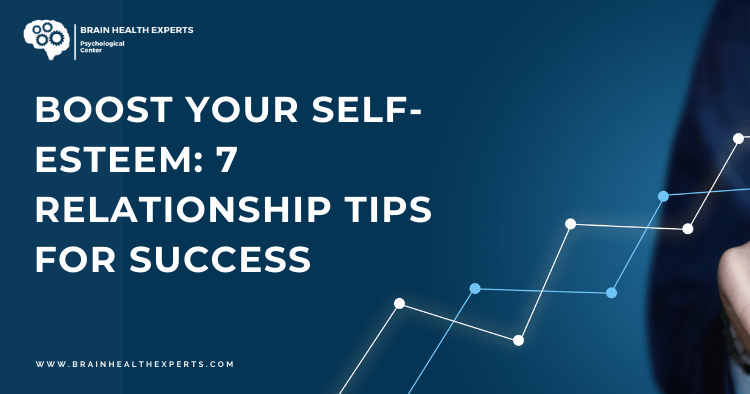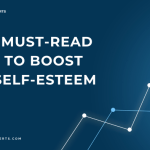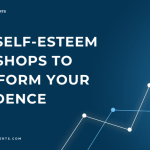Table of Contents
- Understanding Self-Esteem
- The Connection Between Self-Esteem and Relationships
- Tip 1: Communicate Openly
- Tip 2: Set Boundaries
- Tip 3: Practice Self-Compassion
- Tip 4: Surround Yourself with Positivity
- Tip 5: Celebrate Your Achievements
- Tip 6: Seek Professional Help
- Tip 7: Engage in Personal Development
- Conclusion
- FAQs
Understanding Self-Esteem
Self-esteem is how we perceive our worth and value as individuals. It encompasses our beliefs about ourselves, our abilities, and our overall confidence levels. High self-esteem can lead to a positive outlook on life, while low self-esteem can result in anxiety, insecurity, and unhealthy relationships. Understanding what self-esteem is and how it affects us is the first step in learning how to boost it.
Key Aspects of Self-Esteem
- Self-Confidence: Believing in your capabilities.
- Self-Respect: Valuing yourself and your needs.
- Self-Acceptance: Embracing who you are, flaws and all.
For more insights, visit Psychology Today.
The Connection Between Self-Esteem and Relationships
Self-esteem significantly impacts our relationships. When we feel good about ourselves, we are more likely to engage positively with others. Conversely, low self-esteem can lead to feelings of unworthiness, which can hinder our ability to connect deeply. Relationships thrive on mutual respect and understanding, which can be difficult to establish when one partner struggles with self-worth.
The Ripple Effect
- Insecurity: Constantly questioning your partner’s feelings toward you.
- Dependency: Relying on others for validation.
- Conflict: Misunderstandings arising from a lack of trust in oneself.
Understanding this connection can help you take actionable steps to improve your self-esteem, ultimately enhancing your relationships. You can explore more about how positive thinking boosts relationships in our article on 10 Ways Positive Thinking Transforms Your Relationships.
Tip 1: Communicate Openly
Open communication is the cornerstone of any healthy relationship. Sharing your thoughts, feelings, and insecurities can help build trust and understanding. When you express yourself honestly, it creates an environment where both partners feel safe to be vulnerable.
How to Communicate Effectively
- Use “I” Statements: Instead of saying, “You never listen,” try “I feel unheard when…”.
- Listen Actively: Show your partner that you value their input.
- Be Honest but Kind: Share your feelings without being hurtful.
Learn more about effective communication in relationships from the American Psychological Association.
Tip 2: Set Boundaries
Establishing boundaries is crucial for maintaining self-esteem and respect in relationships. Boundaries help define what is acceptable and what is not, allowing both partners to feel safe and valued.
Why Boundaries Matter
- Protect Your Well-Being: They prevent emotional burnout.
- Establish Respect: They signal what you value in the relationship.
- Encourage Independence: Healthy boundaries allow both partners to grow individually.
To learn more about setting boundaries, check out this helpful guide from MindTools.
Tip 3: Practice Self-Compassion
Self-compassion involves treating yourself with the same kindness and understanding that you would offer a friend. It’s essential for building self-esteem and fostering healthy relationships.
Steps to Cultivate Self-Compassion
- Acknowledge Your Feelings: Recognize and accept your emotions without judgment.
- Practice Mindfulness: Stay present and aware of your thoughts and feelings.
- Be Kind to Yourself: Replace negative self-talk with supportive affirmations.
For more on self-compassion, visit the Self-Compassion website.
Tip 4: Surround Yourself with Positivity
The company you keep can greatly influence your self-esteem. Surrounding yourself with positive, supportive people can uplift you and foster a sense of belonging.
Tips for Building a Positive Circle
- Evaluate Your Relationships: Identify which relationships are draining and which are uplifting.
- Seek Supportive People: Look for friends and partners who celebrate your successes and encourage your growth.
- Engage in Positive Activities: Participate in community groups or activities that resonate with your values.
Check out this guide on building healthy relationships.
Tip 5: Celebrate Your Achievements
Recognizing and celebrating your achievements, no matter how small, can significantly boost your self-esteem. It reinforces the belief that you are capable and worthy of success.
How to Celebrate Achievements
- Keep a Journal: Write down your accomplishments and reflect on them regularly.
- Share with Friends: Let your loved ones celebrate with you to reinforce your sense of community.
- Reward Yourself: Treat yourself to something special when you achieve a goal.
For more tips, check out the article on the importance of celebrating achievements.
Tip 6: Seek Professional Help
If you’re struggling with self-esteem issues that affect your relationships, seeking professional help can be a game-changer. Therapists and counselors can provide tools and strategies to help you navigate your feelings and improve your interactions with others.
When to Seek Help
- Persistent Negative Thoughts: If you find yourself constantly doubting your worth.
- Relationship Issues: If low self-esteem leads to conflict in your relationships.
- Emotional Distress: If you feel overwhelmed by feelings of inadequacy.
Explore more about therapy options at the National Institute of Mental Health.
Tip 7: Engage in Personal Development
Investing time in personal development is crucial for boosting self-esteem and enriching your relationships. Learning new skills, pursuing hobbies, or setting new goals can foster a sense of accomplishment and confidence.
Personal Development Ideas
- Take a Class: Learning something new can invigorate your self-esteem.
- Join a Club or Group: Surround yourself with like-minded individuals.
- Set Personal Goals: Focus on achievable goals that challenge you.
For more resources on personal development, visit MindTools.
Conclusion
Boosting your self-esteem is an ongoing journey that significantly impacts your relationships. By implementing these seven tips—communicating openly, setting boundaries, practicing self-compassion, surrounding yourself with positivity, celebrating your achievements, seeking professional help, and engaging in personal development—you’ll foster healthier, more fulfilling connections.
Remember, building self-esteem takes time and effort, but the rewards are well worth it. You deserve to have relationships that uplift and empower you!
FAQs
Q: How can I improve my self-esteem quickly?
A: Incorporate daily affirmations, practice gratitude, and engage in activities that make you feel good about yourself.
Q: Is low self-esteem a common issue?
A: Yes, many people experience low self-esteem at some point in their lives. It’s important to recognize it and take steps to improve it.
Q: Can relationships affect my self-esteem?
A: Absolutely. Healthy relationships can boost your self-esteem, while toxic relationships can diminish it. Focus on surrounding yourself with supportive individuals.
Q: When should I seek help for low self-esteem?
A: If you find that low self-esteem is interfering with your daily life or relationships, it may be time to talk to a mental health professional.
For additional reading, consider exploring resources from Mental Health America. Also, look for further insights on boosting self-esteem in our articles: 10 Proven Techniques to Boost Your Self-Esteem Today and 5 Ways Emotional Intelligence Boosts Your Self-Esteem.





